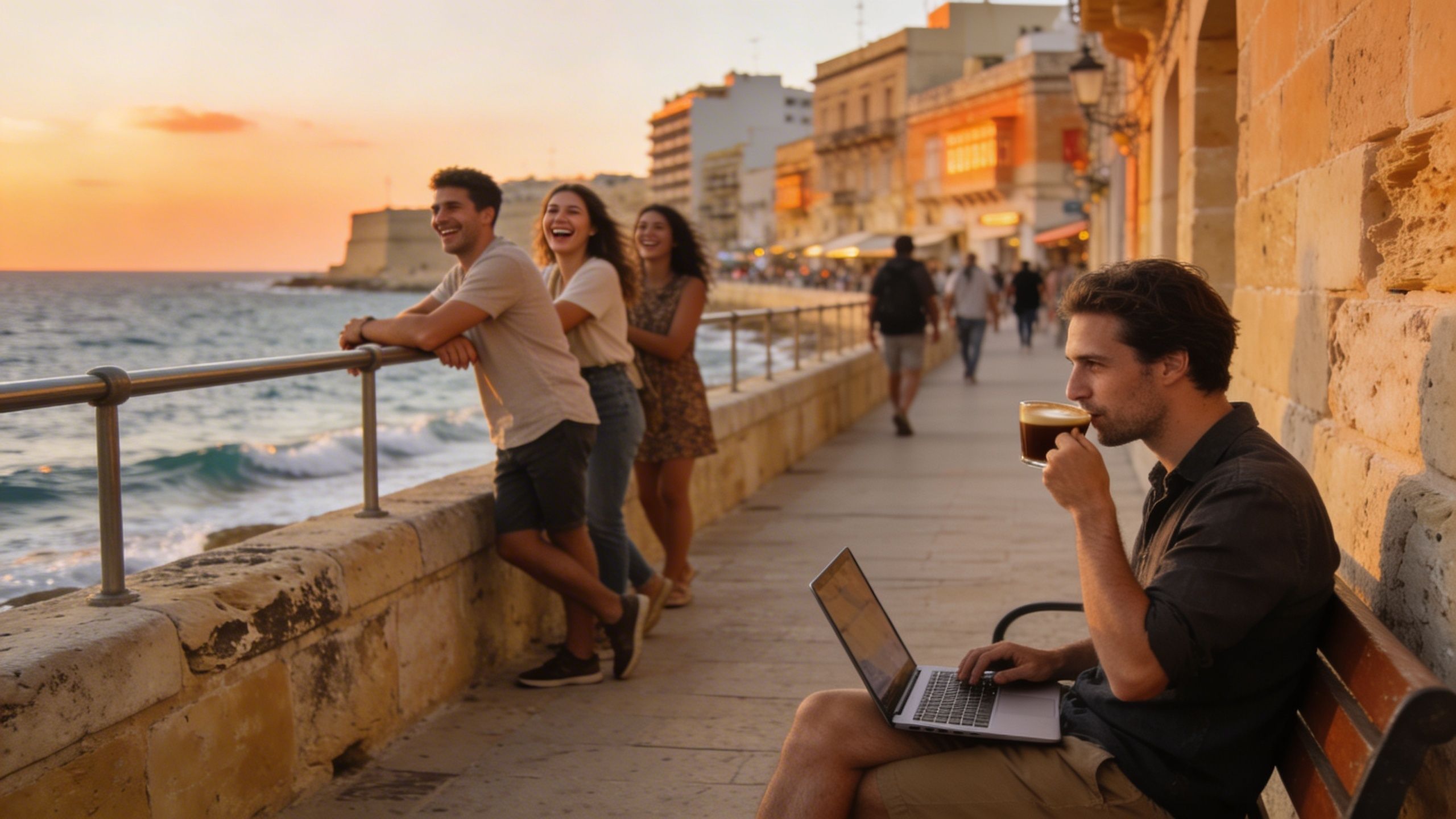Budget Reality Check: Greece’s Lifestyle Costs & Hidden Fees
Greece offers Mediterranean lifestyle and rising prices — plan budgets that include taxes, new Golden Visa rules, upkeep and seasonal income realism.
Imagine sipping an early-morning espresso at Kafenío on an Athens side street, then opening your laptop on a sun-warmed balcony overlooking bougainvillea and the Aegean. That Italian-espresso-meets-Mediterranean-ease scene is Greece as most of us dream it: slow mornings, lively markets, and a coastline that doubles as your weekend playground. But if you’re serious about buying here, that balcony dream needs a budget that sees beyond the purchase price — to taxes, local rules, seasonality and how recent policy shifts reshape values.
Living the Greek life — what actually feels like home

Greece is sensory. Morning fishmongers call from Varvakios Market in Athens; tavernas in Chania fill with laughing families at dusk; Mykonos lanes glow with boutique windows and stray cats. Life rhythms are tied to food, place and season — olive harvests in November, beach slow-downs in October, crowded summers that can make otherwise quiet villages hum. That rhythm affects how properties feel and function: a studio in Plaka is a daily urban theatre; a stone cottage in Mani gives winter silence and spring abundance.
Athens pockets: Kolonaki, Koukaki, Pangrati
Kolonaki is polished cafés and galleries — great for coworking meetups and fast broadband; Koukaki balances local life with short walks to the Acropolis and a suddenly thriving café scene; Pangrati is where families, creatives and remote workers mix. For nomads prioritising connectivity and social life, these micro-neighbourhoods give urban convenience without losing the village-like streetscape.
Islands & regions: What the seasons change
Summer islands like Mykonos and Santorini offer spectacular return on lifestyle — sea, sunset culture, and international connections — but they also bring tourist price spikes, crowded summers and regulations that increasingly restrict short-term letting. Mainland regions (Peloponnese, Epirus, Thessaly) deliver calmer, more affordable living and year-round communities — better if you want slow winters, cheaper renovations and neighbours who are full-time locals.
- Lifestyle highlights to test during a scouting trip:
- Taste test at Varvakios Market (Athens), work from Koukaki cafés, sunset walks on Lycabettus, weekend olive-press visits in Peloponnese, ferry mornings from Piraeus to nearby islands, and a winter weekend in Chania’s old harbour.
Making the move: the money you didn’t count on

Buying in Greece now happens in a market that has seen rapid price gains — double‑digit yearly rises in 2023 and slower but still solid growth through 2024 — so your headline price is only part of the math. Expect transfer taxes, notary and lawyer fees, property registry charges, real estate agent commissions, and renovation budgets. Add seasonal maintenance on island properties and higher utility costs for older stone houses.
Property types & real monthly costs
A modern Athens apartment brings predictable bills and reliable internet; a restored farmhouse in Zagori can feel magical but will need insulation, septic or well work, and regular upkeep. Sea-front properties often carry higher insurance and maintenance (salt air damages fittings), while older stone homes can require plaster, structural stabilisation and rewiring. If you plan to rent long-term, seasonal demand shapes yield more than headline purchase price.
- 6 steps to build a realistic budget (lifestyle-first)
- 1) Start with total landed cost: purchase price + 10–15% for taxes/fees + renovation buffer. 2) Add annual fixed costs: property tax (ENFIA variations), waste & water, insurance, and utilities. 3) If you rely on rental income, stress-test forecasts against shoulder seasons and new short‑term rental rules. 4) Check Golden Visa thresholds early — high-demand zones now require substantially larger minimum investments. 5) Secure financing pre-approval if you need a Greek mortgage; foreign buyer rates and terms vary. 6) Factor in currency movement and cross-border transfer fees.
Insider knowledge: what expats wish they’d known
Two practical truths from expats: first, fast internet and a reliable coworking spot are worth paying for if you work remotely; second, rules around short‑term rentals and the Golden Visa changed fast in 2024–25 and can upend income plans. Local nuance matters — a melody of municipal rules, island councils and zoning laws — so local expertise is essential.
Cultural & legal cues to keep front of mind
Greece’s recent legal changes have tightened short‑term letting in central districts and raised Golden Visa thresholds in prime zones — that’s great for long-term housing supply, but it reduces quick-win rental plays. Socially, Greek neighbours value local ties: introduce yourself, join the kafeneio chatter, and your renovation questions will be answered faster than any online forum.
Conclusion: Greece gives you a lifestyle that’s hard to leave and a property market that rewards local knowledge. Start with a lifestyle trial: a month working from a neighbourhood you love; map real costs with a local lawyer and tax advisor; and partner with an agency that knows both the best cafés and the most reliable notaries. When the numbers and the mornings align, that balcony espresso becomes home — sustainably and sensibly.
Danish investor and relocation advisor focusing on Portugal and the Algarve; loves coworking culture and expat networks.


